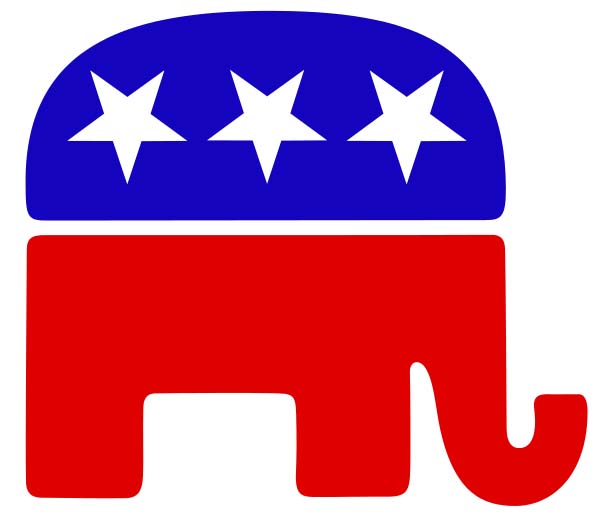The “Sly Genius” of Obfuscation
Duncan Glew Ignores Important Facts in His Partisan Hit-Job

On Tuesday, Duncan Glew penned a piece for the Banner entitled “The Sly Genius of the Republican Party.” This piece, while carrying all the hallmarks of a partisan hit, also includes worrying prejudices and misstatements of fact that cannot go unopposed. As one of the few vocal conservatives at Harriton, I thought it imperative to write this rebuttal, detailing exactly where Mr. Glew went wrong.
Chief among the factual misstatements Glew makes is his assertion that “African Americans are incarcerated at more than five times the rate of whites” due to “institutionalized racism in the criminal justice system.” This is absurd. The main reason that black Americans are overrepresented in prison is because more black Americans, proportionally speaking, commit crimes.
For example, according to the FBI’s Uniform Crime Reporting, in 2013 white Americans were responsible for 2,755 homicides and black Americans were responsible for 2,698, despite the United States in 2013 being around 73% white and 13% black. By examining the facts of the case, we can see that rather than being “institutionally racist,” the prison system in the U.S. is roughly reflective of the perpetrators of crime.
All this is lost on Mr. Glew, however, when he writes so scathingly that “the war on crime was a war on people of color.” I, for one, find it much easier to believe that the “war on crime” is a war on those who commit crimes, rather than a racist conspiracy.
Throughout his piece Mr. Glew attacks the so-called “Southern Method,” a reference to the Democratic talking point of President Nixon’s Southern Strategy. Mr. Glew asserts that Nixon used his “War on Crime” to target black Americans, appealing to latent prejudices in Southern whites, thereafter winning the votes of white Southerners. This is a deceiving statement, which can easily be disproven by examining election data from that period.
Although I have already demonstrated that Mr. Glew’s claims of widespread racism in the criminal justice system are boundless, I will take his incorrect assertion at face value in order to debunk this second component of his argument. I assume Mr. Glew’s comments on the “war on crime” were referring to the time in 1971 when Nixon called drug abuse “public enemy number one.”
This statement came soon after the Comprehensive Drug Abuse Prevention and Control Act of 1970 passed through Congress. Now if, as Mr. Glew suggests, white Southerners were flipped Republican because of these and similar actions, one would expect to see an exceptional rise in the proportion of votes going to Nixon from the South.
While it is true that Nixon saw his proportion of the Southern vote about double in 1972, examining only this data point misses out on a larger trend: Nixon also increased his share of the independent vote by over 50%, and doubled his share of the votes of registered Democrats. Furthermore, Nixon increased his share of the overall popular vote from 43.4% to 68%.
Saying that Nixon’s policies won him the votes of white Southerners is like saying a rainstorm made white people’s houses wet. Nixon won that year by a landslide. Chalking that up to only the votes of Southern whites is misleading to say the least.
Though the factual inaccuracies of Mr. Glew’s writing are important, they are not the primary reason I decided to write this rebuttal. The primary reason for my reaction is Mr. Glew’s startlingly chauvinistic attitude toward white, working-class Republicans.
Speaking to the GOP’s hold on these voters, Mr. Glew writes that “Simply put, the white working class has never and will never benefit from current conservative legislation. And yet, the Republicans continue to trick them into voting red.” This is nothing but prejudice.
To assume that Republican voters have been duped into voting for a party rather than voting with their principles and conscience is insulting to anyone and everyone who agrees with lower taxation and a decreased role for the public sector in everyday life.
The notion that GOP voters have been tricked into voting against their best interests carries with it the implication that Mr. Glew knows what Republican voters want better than they themselves do. Is it possible, instead, that a sizable proportion of America has a different perspective on how the country should be run? Is it possible that my family and those who agree with me politically are not as stupid as Mr. Glew suggests, and that they might actually support social and fiscal conservatism?
Finally, is it possible that my working-class relatives, rather than “suffer under both fiscal and social conservative policy,” might actually like the policies and politicians they vote for? Perhaps Mr. Glew did not consider these possibilities when writing his op/ed.
Ultimately, it is clear that Duncan Glew has not considered the potential legitimacy of political philosophies differing from his own. Rather than attempting to win others to his side, as the GOP has been doing for decades (as evidenced by the long, slow shift of Congress from generally Democratic before 1950 to generally Republican after 1990), Mr. Glew has devised a broad conspiracy theory to rationalize his party’s failure to appeal to white, working-class voters. Maybe Mr. Glew would experience more success if he attempted to convince others with differing opinions rather than implying that they are easily-fooled racist rubes for not agreeing with him.

